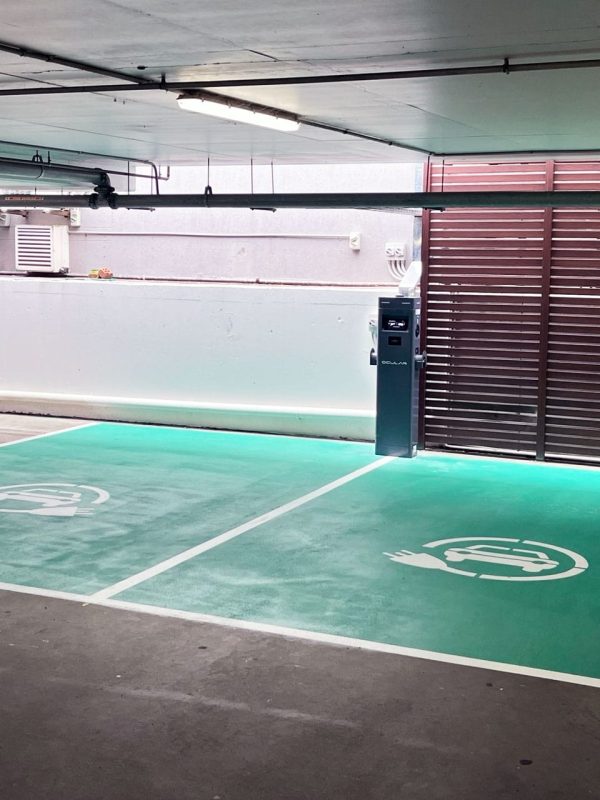EV Charging Stations
Revolutionising Mobility: EV Charging Stations and Installations
Need expert electrical services? At DNA Electrical, we’re always On Time, First Time, Every Time—delivering quality you can trust.

FAQ's
An EV charging station, also known as an electric vehicle supply equipment (EVSE), is a device that supplies electric energy to recharge electric vehicles. They come in various types and power levels, catering to different models of EVs.
An EV charger supplies electricity to the battery of an electric vehicle. It converts alternating current (AC) from your power supply into direct current (DC) to charge the battery of your electric vehicle. The charging speed depends on the power rating of the charger and the vehicle’s battery capacity.
There are three main types of EV charging stations: Level 1, Level 2, and DC Fast Charging. Level 1 chargers use a standard household outlet and are the slowest method. Level 2 chargers are faster and often used in homes, workplaces, and public charging stations. DC Fast Chargers are the quickest and are usually found at public charging stations.
Charging times vary based on the type of charger and the specific vehicle. Level 1 chargers can take 8-20 hours for a full charge, while Level 2 chargers can do the job in 3-8 hours. DC Fast Chargers can charge an EV to 80% in around 30 minutes to an hour
Yes, you can install an EV charging station at home. This is usually done by a professional electrician, like the certified technicians at DNA Electrical, to ensure safety and compliance with local codes and regulations.
The cost of installing an EV charging station can vary widely, depending on factors such as the type of charger, the need for any electrical upgrades, and labour costs. It’s best to get a personalised quote from a professional service provider like DNA Electrical.
EV charging stations require minimal maintenance, primarily ensuring the unit is clean, the connections are secure, and there’s no visible damage. For commercial installations, a routine inspection by a professional is recommended to ensure optimal performance and safety.
Yes, but the charging speed will be limited by the lower power rating of the cable.
You can use online tools and apps like PlugShare or ChargePoint and websites like My Electric Car to find EV charging stations across Australia.
Universal EV chargers can charge any electric vehicle that uses standard plug types, including brands like Tesla (with an adapter), Nissan, BMW, Audi, and more.
